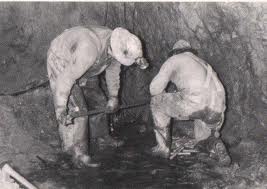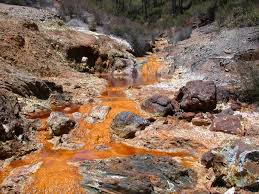Mining is a continuous and ongoing process that has been happening since centuries. It involves the excavation of naturally occurring minerals and other materials, mainly non-renewable like gold, coal, limestone, petroleum (to name a few) from the depths of the earth. It is a vast industry that employs hundreds of people and is a major source of income for most countries. A country’s economy is vastly dependent on mining.
There are various types of mining that are practised all over the world. Open pit mining, underground mining, ISL mining, brine mining and sand mining are some of the most widespread types.
Mining is such an ancient practice that no one ever gives any thoughts to its effect on the earth and its environment. Mining is ruining our ecosystem in a slow and steady manner and if not monitored soon can cause irrefutable damage to our society and environment. The damages can be deadly and devastating for all life forms, including human beings. Here are some effects of mining on the environment-
- Deforestation and loss of animal habitat- open pit or open ditch mining is perhaps the most common type of mining and its major effect is deforestation. This is the most primitive type of mining. To undertake the process of mining, land has to be cleared first. This has resulted in the disappearance of a lot vegetation as well as animal life. Plant life is also being cleared to make room for human settlements, especially those of the mine workers.
- Deforestation is the not the only outcome of open ditch mining. Mining also results in soil erosion. A lot of rocks that were embedded deep beneath the earth are suddenly exposed and brought to the surface. When brought in contact with air, these rocks can produce harmful chemicals and other radioactive elements that can cause immense harm to the environment.
- Mining can also cause huge levels of water pollution, which is most common in underground mining. The chemicals or toxins that are that are released during the mining process can contaminate the adjoining area of the mine and mix with water and air as well. The chemical run-offs like mercury, arsenic and sulphuric acid from the mining areas blend or mix with the nearby water bodies, thus contaminating them. Moreover, heavy metals dissolved in mine water sometimes merge with nearby water bodies. This contaminated water can cause serious health problems in human beings. Mercury tailings, including improper disposal pose a major threat to the well being of human population. Even if combined with air, lung infections and breathing problems are just a few of the many problems that can arise out of it.
- Large scale mining can also result in a phenomenon called acid rock damage. The acidic water that is released from mining can cause permanent rock damage and weathering in the surrounding areas.
- Air pollution from burning coal in coal mines is yet another significant adverse effect of mining. Fly ash or heavy metals that are produced during the process dissolves in the air and damages the environment to no bounds. It is also dangerous for the people working there. Apart from breathing problems and suffocation, collision of vehicles, roof collapses, gas poisoning and explosions are the more serious effects arising from it. In addition to these, the blasts from mine sites cause noise pollution.
- Fossil fuel that is required for mining activities can cause carbon emissions.
As discussed, these are some principle concerns that need to be addressed immediately to maintain and preserve our ecosystem. From water and air to land and noise pollution, mining really covers a wide array of environmental damage. If nothing is done soon, it poses an imminent threat to all life forms on earth. Luckily, countries are taking steps to reduce the pollution as much as possible.
Greenhouse gas and mercury emissions along with threat of radiation are some immediate dangers that need to be looked into. Some companies are undertaking land filling activities, popularly called mine reclamations that fill out the cavities formed in the land due to mining, restoring the land to its original state. But this is a fairly new thing and is not practised as abundantly as it should be. Another way to minimise environmental damage from mining is to minimise the use of minerals as much as possible. If that is not possible, another alternative is recycling. Use of recycled materials would inadvertently lead to less mining and thus lesser damage. If mining is not reduced in the next fifty years, human race may have to face extinction along with plant and animal life.
Mining should also be done under proper regulations and care. Companies should adhere to the government regulations properly for any mining activities that are taking place. Any waste product from mines should be disposed of properly and not dumped into rivers or lakes. Sludge filled lakes are a growing concern in many cities and towns across the world. Severe steps should be taken against illegal and improper mining activities. In the end, we have to remember something- mining does yield money but at what cost?


Leave a Reply